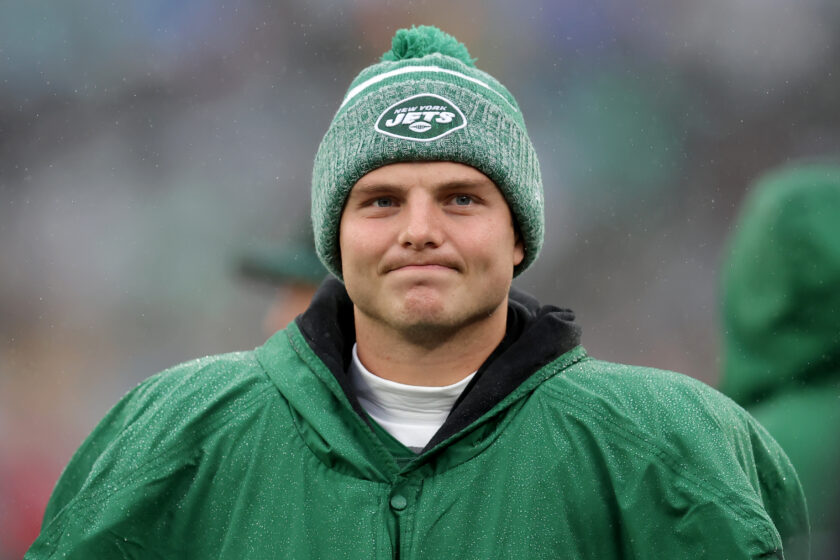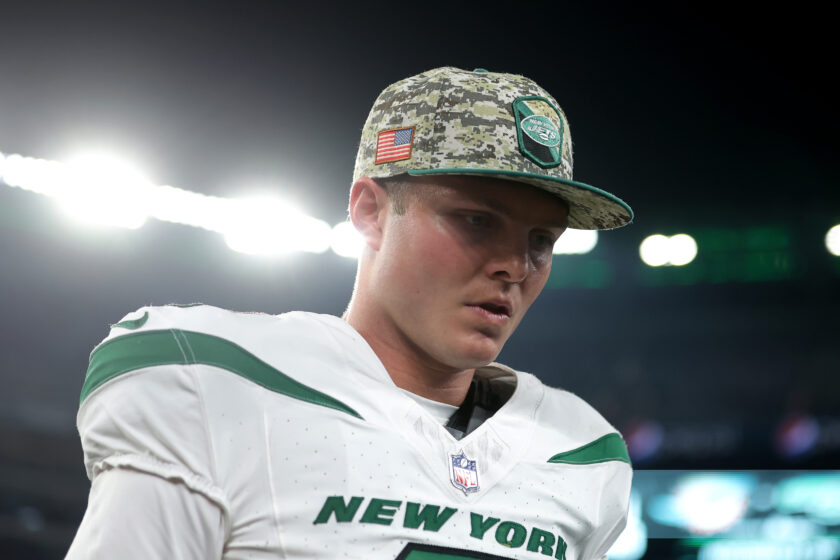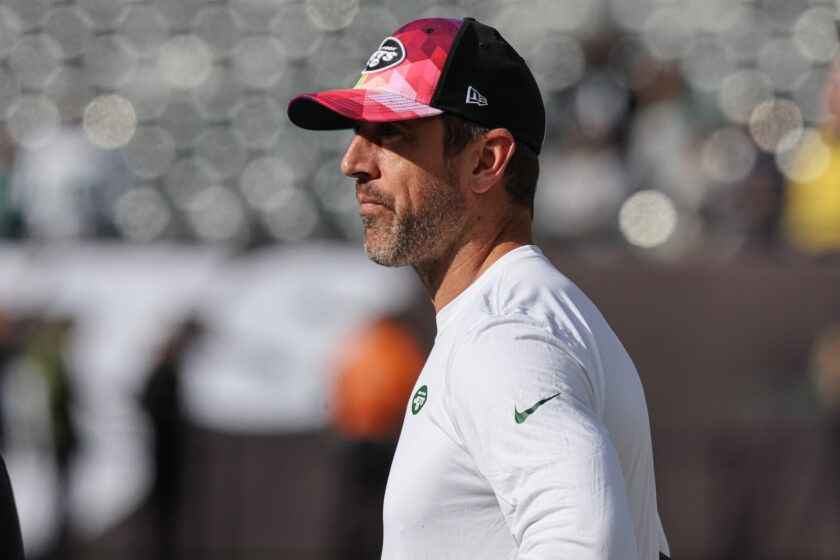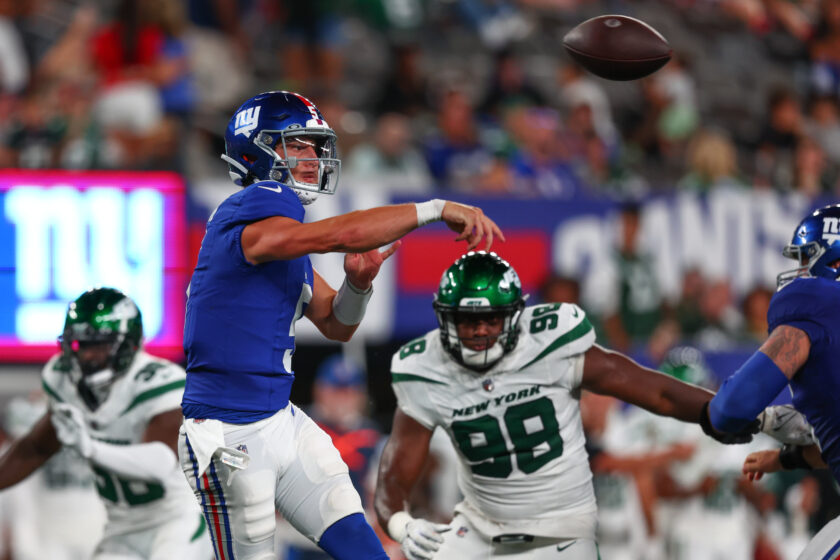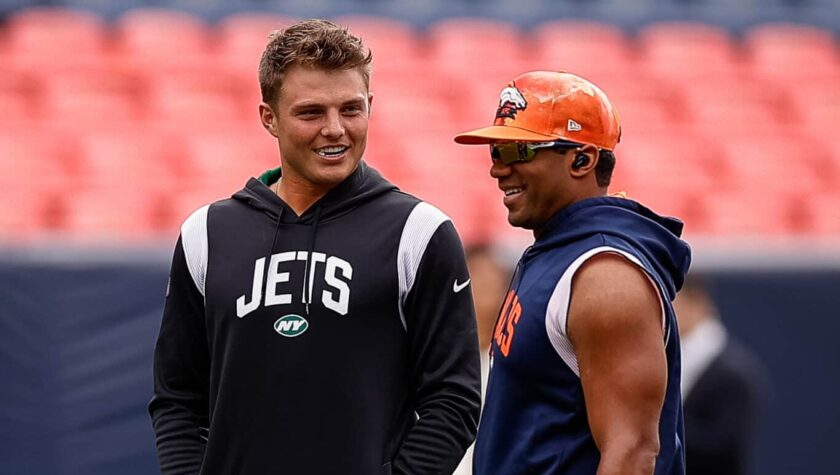Brian Poole: The New York Jets lone ‘must re-sign’ free agent
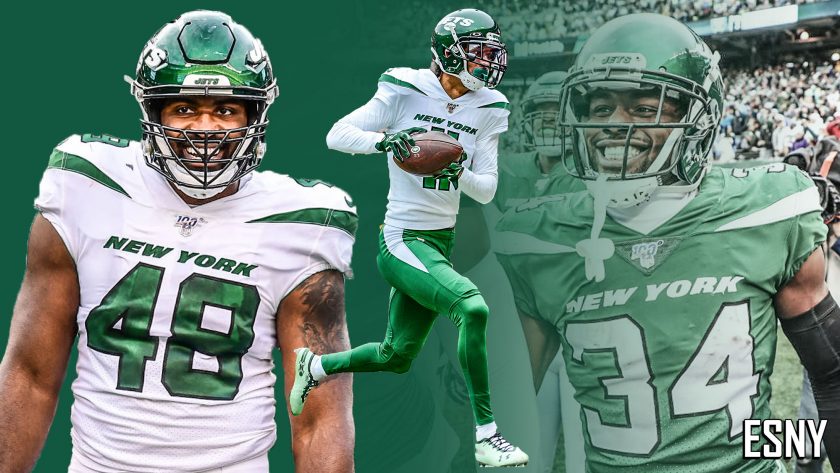
There’s only one free agent the New York Jets need place into the “must re-sign bucket,” and his name is Brian Poole.
[sc name=”robby-sabo-banner” ]These are the boring times, the dead times, the spot on the calendar year in which New York Jets fans ache for anything to break.
Other than a spot or two during the actual NFL offseason, a fanbase for a team not in the NFL tournament is just dying for any activity even loosely associated with its squad.
Thus, it’s free agent speculation time. What else is there for a team uninvited to the postseason for the ninth-straight season? (By the way, nine-straight seasons out of the playoffs is a remarkable fact in its own right, especially after the playoff-appearance success the franchise experienced from Bill Parcells through Rex Ryan’s early years.)
But, anyway, back to the task at hand. The Jets enter the offseason party with 20 free agents and a possible 30 who can hit the open market. With the likes of Robby Anderson, Kelvin Beachum and Jordan Jenkins, the names are decently sized and impactful. But only one man falls into the “must re-sign” category.
His name is Brian Poole.
Poole, 27, enjoyed a tremendous first campaign under defensive coordinator Gregg Williams. Tallying an interception, a touchdown, a forced fumble, five pass deflections and 58 total tackles, Poole nearly locked down the most impossible position to secure in the NFL: slot corner.
Though the Jets cornerback situation remains bleak, Poole in the slot represents one of the better situations in the NFL. Behind the likes of the upper echelon and the outside guys who sometimes move inside—Chris Harris, Bryce Callahan, Kenny Moore II, Minkah Fitzpatrick, Desmond King II—Poole belongs in the conversation as one of the top slot corners.
The reasoning for why Joe Douglas needs to be all over him this offseason travels far deeper. Poole’s value to this specific defense is immense.
Williams’s unit is unlike most. Possessing one of the worst pass-rushing situations in the NFL, the Jets defense was forced to deploy a drastically different identity as opposed to a traditional style. They were forced to play from an outside-in style as opposed to inside-out.
The unit featured the safeties, the strength of the defense, heavily. With Marcus Maye as the centerfielder and Jamal Adams, well, everywhere, Williams used a ton of disguised zone coverages and blitzed the hell out of his defensive backs—even when it only comprised a four-man rush, all told.
Though he’s a corner in your program, Poole served as the third safety on the field.
The man’s tackling ability and physicality allowed Williams to use him as a third safety within a standard nickel defense. Meshing with Adams and Maye, some of the schemes the Jets pulled off while feeling the burn of the nonexistent conventional pass rush ranks as remarkable.

One of Williams’s favorite principles is the Cover 2 Buc. But, interestingly, he used Poole, the slot corner, as the deep-middle third zone man far more often than the traditional player who’d take that spot (the inside linebacker). Very few corners can take on such versatility, especially in the middle of the field (resembling safety duties).
Robby Anderson
- $3.M cap hit in 2019, UFA in 2020
After Poole are some players who could deserve the re-sign label, but don’t fall into the “must re-sign” category. And yeah, that includes Robby Anderson.
The pricetag Anderson will fetch this offseason signals the entire point of contention. The general consensus at the moment provides Anderson with a $12 million per year hit with a new deal. It wouldn’t be the worst thing in the world for the franchise to pony up that figure, so long as it’s understood he’s not a No. 1 wideout.
The top wide receiver attribute in the NFL is route-running, something Anderson has not yet conquered. What’s worse is, he never will.
Anderson simply doesn’t possess the hips to get it done. His straight-line speed is deadly and his hands remain questionable—despite his promising touchdown grab in the end zone against the Pittsburgh Steelers.
Sam Darnold is properly reading the NFL safety at the moment, but he finds trouble due to the fact he's not seeing the entire field.
Here, two-man route, he goes to the right spot based on the single-high action, but doesn't see the CB pass off and get depth. #Jets pic.twitter.com/PLbLtaVQJb
— Robby Sabo (@RobbySabo) December 28, 2019
Douglas should engage with Anderson’s camp, but not travel beyond the $10-12 million range per season while also understanding he needs cap space to pick up a clear-cut No. 1 option moving forward.
Jordan Jenkins
- $2.21M cap hit in 2019, UFA in 2020
Jordan Jenkins is identified as the most confusing free agent this offseason. Due to the obvious need at the edge spot, he falls into the “must re-sign” category for most pundits.
Not true.
Jenkins, though professional and excellent as per a locker room leader, is not an individual an NFL defense wants as either one of the two bookend edges in a clear pin-your-ears-back situation. He comes to the line-of-scrimmage party as a physical force who usually bull-rushes his way to the quarterback.
The Jets are desperate for athleticism on the edge, not only when rushing the passer, but when defending the run. Look no further than Lamar Jackson’s night against this Jets defense. New York’s edges, even when disciplined, had no shot to contain the edge against the zone read.
The Raven's second play from scrimmage. Jordan Jenkins… unless Gregg Williams called something outlandish, just didn't take to his responsibility here.
MUST stay home on the edge and focus on Lamar. Don't get sucked in, don't crash, especially with a blocker coming at you. pic.twitter.com/lu1EamfKCr
— Jets X-Factor (@jetsxfactor) December 19, 2019
Jenkins remains a perfect run-support edge in base and a third edge in the subpackage. A re-signing is fine, and may even be necessary, but it’s not a must.
Other Tough Decisions
Kelvin Beachum: His recent Twitter activity begs the question, “Who are/were the Jets true leaders?” Hammering Adam Gase for not running enough in two-minute situations when the team finished tied for last with a 3.3 YPC yet 26th in rush attempts (ahead of the Kansas City Chiefs), really looks terrible. Moving on from Kelvin Beachum while drafting as many offensive linemen as possible is Douglas’s top goal—something that needed to be done over the last few seasons.
Yes, let’s run more at that 3.3 YPC (last). 26th in ATT, 8 more than KC.
The culture aspect is real. From the HC to the players to everybody. No matter your feeling on the HC, this doesn’t help anything. It only further hurts the organization.
Who were the Jets true leaders? https://t.co/fFHyE2ZPG5
— Robby Sabo (@RobbySabo) January 5, 2020
Alex Lewis: Re-signing Alex Lewis would be a nice grab for Douglas. He’s proven capable as a starting guard in the NFL.
Neville Hewitt: Neville Hewitt also falls into the “should re-sign category.” The kid played well under tough circumstances in 2019.
The Rest
- Trevor Siemian
- Ty Montgomery
- Ryan Kalil
- Demaryius Thomas
- Brandon Copeland
- Bilal Powell
- Lachlan Edwards
- Brandon Shell
- Daniel Brown
- Tom Compton
- Brett Qvale
- David Fales
- Maurice Canady
- Albert McLellan
- Paul Worrilow
- James Burgess (RFA)
- Arthur Maulet (RFA)
- Sam Ficken (EFA)
- Josh Malone (EFA)
- Frankie Luvu (EFA)
- Leo Koloamatangi (EFA)
- A.J. Bello (EFA)
- Bennett Jackson (EFA)
Of the rest, both restricted free agents, James Burgess and Arthur Maulet, may represent the two most pressing negotiations. Both players add nice depth to the defense.
The Ryan Kalil experiment didn’t work out. But, as opposed to conventional wisdom, the man can still play. Kalil did some nice things in the ground game early in the season, but struggled when standing up. It’s probably wise for Douglas to move on from the veteran.
Trevor Siemian could return as the backup, but it’ll depend on the backup quarterback market. Bilal Powell and Ty Montgomery are most likely both gone (unless Le’Veon Bell is traded), and even in such an event, other backs could be acquired.
With 30 players possessing the ability to hit the open market, the Jets will be forced to retain at least 5-to-10. That sheer number, alone, means the 2020 roster will employ more faces than the average 33 percent roster turnover number NFL depth charts usually experience.
But among those 30, only one falls into the “must re-sign category,” a man whose talents allowed his infusion into the defense’s identity: Brian Poole.
Robby Sabo is a co-founder, CEO and credentialed New York Jets content creator for Jets X-Factor - Jet X, which includes Sabo's Sessions (in-depth film breakdowns) and Sabo with the Jets. Host: Underdog Jets Podcast with Wayne Chrebet and Sabo Radio. Member: Pro Football Writers of America. Coach: Port Jervis (NY) High School. Washed up strong safety and 400M runner. SEO: XL Media. Founder: Elite Sports NY - ESNY (Sold in 2020). SEO: XL Media.
Email: robby.sabo[at]jetsxfactor.com

